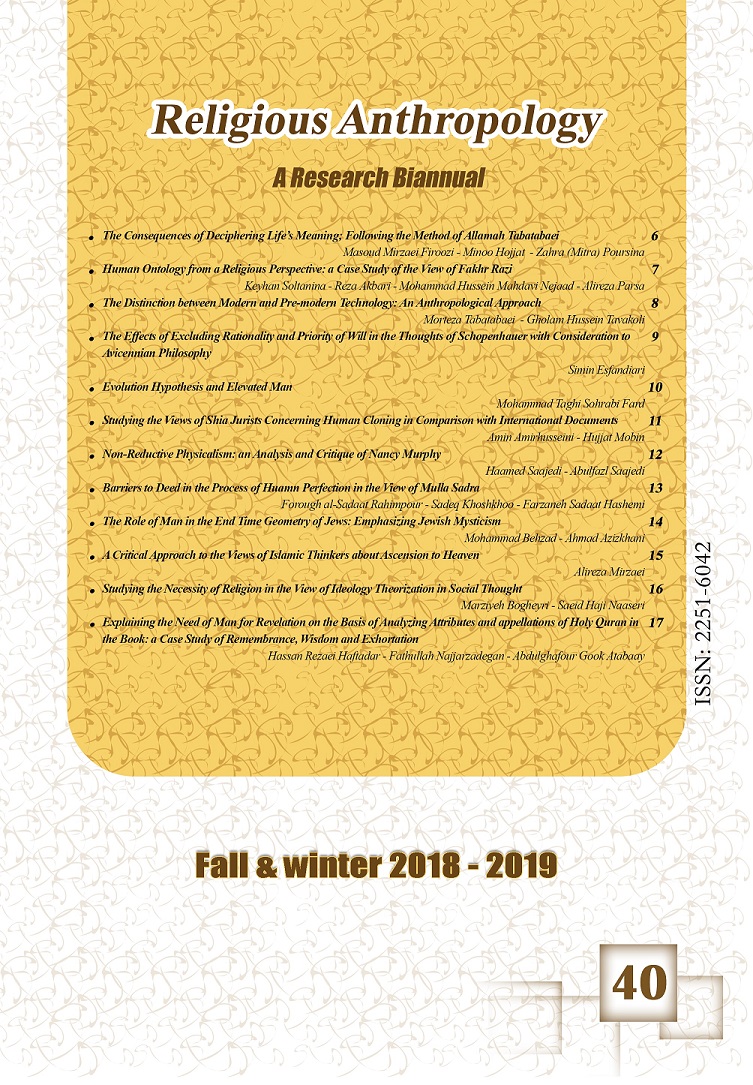Non-Reductive Physicalism: an Analysis and Critique of Nancy Murphy
Document Type : Research Paper
Authors
1 PhD Candidate of Tehran University
2 Professor in Imam Khomeini Educational and Research Institution
10.22034/ra.2019.64752.1970
Abstract
Duality or unity of human soul and body are among those important and challenging issues for philosophers and psychologists and, therefore, many thinkers have thought over them. Is there any real being, in addition to body called soul, spirit or mind? May these concepts be reduced to body or to brain, to function, to behavior, to structure or to other holistic properties of body? Physicalism is one of those approaches believing in the soul as being substantially reducible to the body. While non-reductive physicalism dose not view the properties and dispositions of the soul as reducible to those of the parts of the body. Contrary to physicalism, substatial dualism not only considers the attributes of the soul as not being reducible to those of the body but views the soul itself as not being reducible to it also. Dr. Murphy supports non reduvtive Physicalism and, relying on th findings of the experimental sciences, specially those of neuroscience, argues against the belief in an incorporeal substance and views its proofs as founded on intuition and, therefore, not acceptable. She takes the concept of “top-down causation” and a holistic outlook to material aspect of man as necessary for his reality to be understood. Thus, this paper is an attempt to compare and judge between dualism and non-reductive Physicalism. What found in experimental sciences lies in full agreement with a correct interpretation of dualism. Without intuition, one may not enter into the realms of self-knowledge and anthropology. It is possible for dualism to be based upon on some philosophical argumentations of publicly understandable intuitional propositions. Provided that being explained well, the concept of top-down causation can show the dualism also.
Keywords
